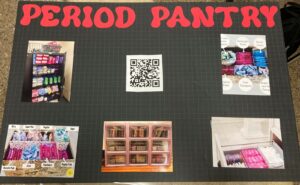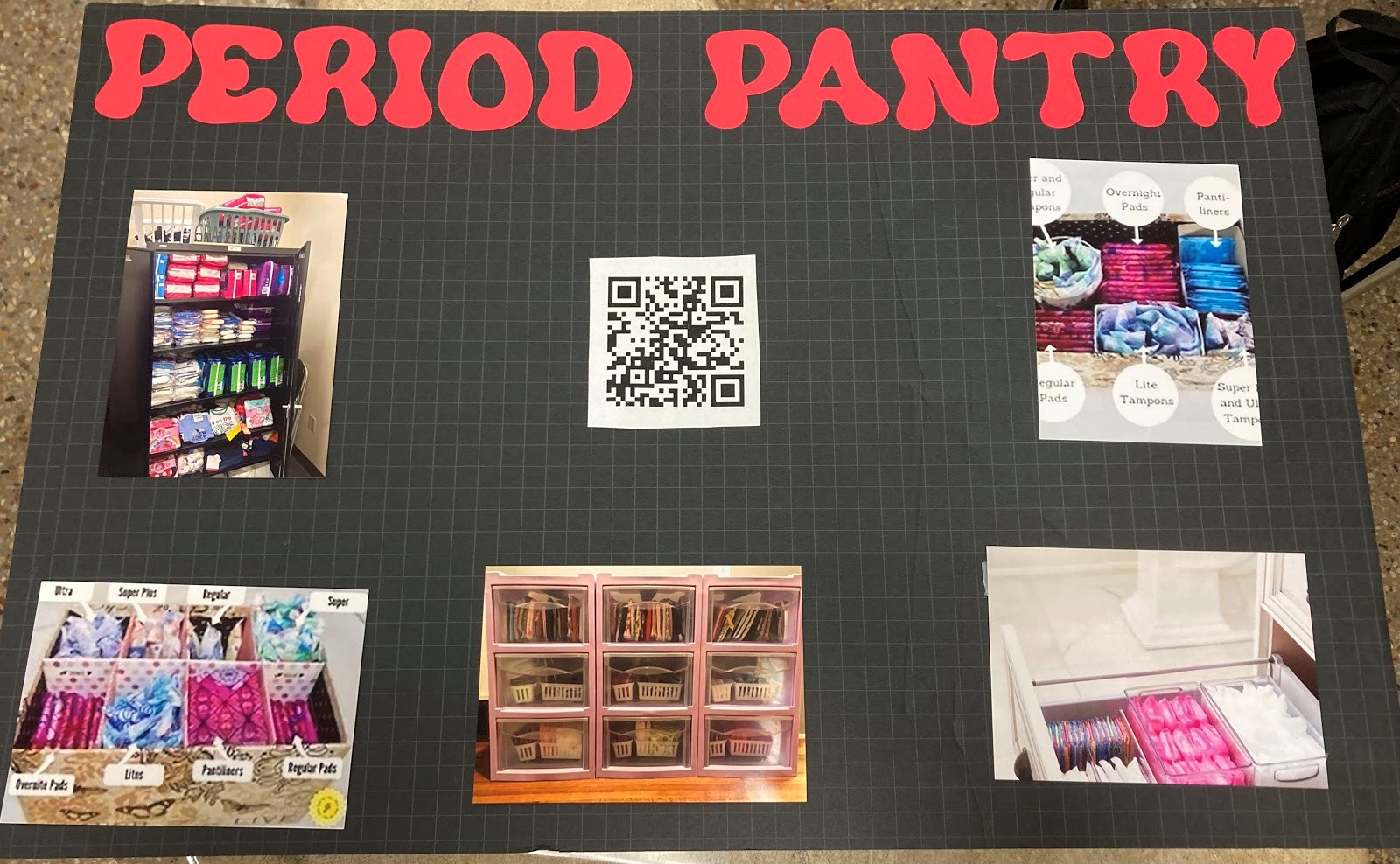Written by Abby McAdams, Dripping Springs High School
“Period poverty,” the lack of menstrual products and education, can become a particularly damaging issue in middle and high schools for students from low-income families, deprioritizing their accessibility, or simply placing a stigma on menstrual cycles. This toxicity is what inspired authors Sophia Apolinar, Desiree Calvio, and Terrycinia Pointer to propose an action to ensure adequate period products are administered in schools through donations and providing information to students.
The authors explained how period poverty impacts women and girls negatively throughout the U.S., even affecting students’ grades and attendance. According to them, “58% of women have felt a sense of embarrassment simply because they were on their period.”
The proposal consists of four major actions: implementing menstrual product-providing Period Pantries in school restrooms; hosting donation drives for products; delivering said products to the restroom pantries; and creating school websites to give students menstrual health information.
Pro Speaker Rowan Dooldeniya clarified her support of the proposed action. She asserted that girls need “to be supported during their menstrual cycles,” and this action would not only provide assistance, but help to destigmatize periods and make the process more comfortable.
But the proposal did not receive the support of every delegate. The Con Speaker argued that school nurse offices already provide menstrual products for students, and that holding schools responsible for having these products at hand “adds burden to the administration” and stress to the school’s budget. In response, the authors claimed that nurse office products were usually in short supply and too general for students with varying ages and period types. The subject of the school’s responsibility for providing menstrual products, however, showed itself to be a prevailing issue, and was elaborated in the amendments.
Angela Mariotti, amendment author for the proposal, stated that schools should provide menstrual products “out of pocket.” In response, Con Speaker Dooldeniya countered that conclusion will strain their budgets, and instead suggested working “through charities which will already provide this service.” A consensus was reached that if donations were insufficient, the school was subsequently responsible for providing products.
The next amendment author, Zoe Moreno, counseled to implement school fundraisers for period products. This suggestion was unanimously supported by the delegates, who agreed it wouldn’t inflict too much stress on the school administration while still being able to support the students.
The proposal was passed unanimously by the committee.

An example of a “Period Pantry” as proposed in the legislation.

